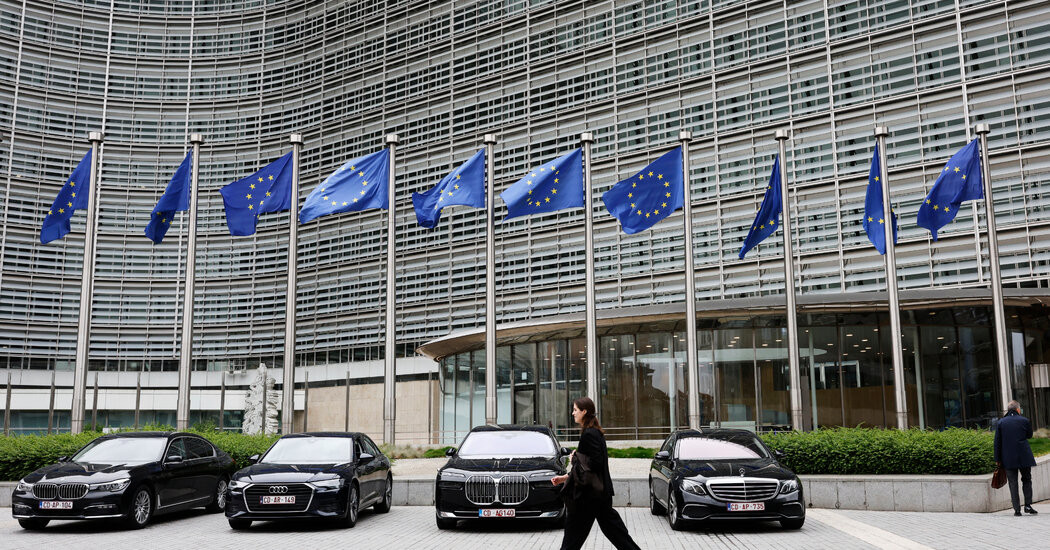

The European Union has its problems, but the bloc is gaining public trust and making new friends. President Trump’s attacks are one reason why.
President Trump’s pledge to “Make America Great Again” appears to be having an unexpected side effect: He is bringing Europeans together again.
The European Union was in bad shape at the start of the first Trump administration. Public trust in the bloc was at a historic low, Britain had just voted to leave, and the European economy was struggling to recover from the global financial crisis, which had set off a series of debt-related meltdowns across the continent.
But things slowly started to improve from around 2016. In recent months, sentiment around the European Union has picked up further. Trust ratings are approaching a two-decade high. E.U. leaders are striking trade deals with fast-growing economies like Indonesia, standing up a defense plan that has garnered partnerships with nations including Canada, and even Britain recently struck a deal to reset relations.
The bloc still has very real problems. Its population is aging and economic growth remains slow. Populist detractors who criticize it loudly have been gaining momentum, and it is grasping for ways to revitalize competitiveness. Ursula von der Leyen, the president of the European Commission, the European Union’s executive arm, has come under fierce criticism as she tries to overhaul the bloc’s budget.
But even in member states like Denmark, which has long been skeptical of the European Union’s budget and border policies, feelings toward the bloc have turned decidedly more positive.
“Support toward the E.U. has never been higher,” Marie Bjerre, Denmark’s minister for European Affairs, said in an interview.
The number of E.U. countries where people approve of American leadership more than the bloc’s own has sharply declined.



